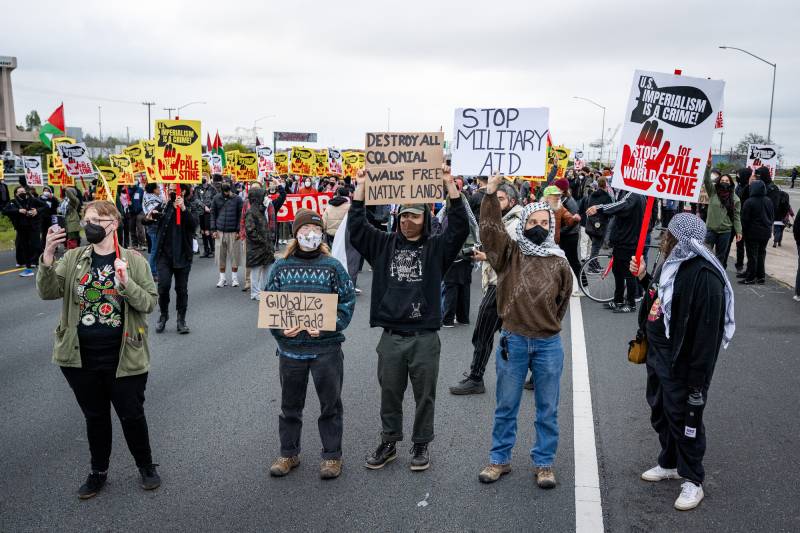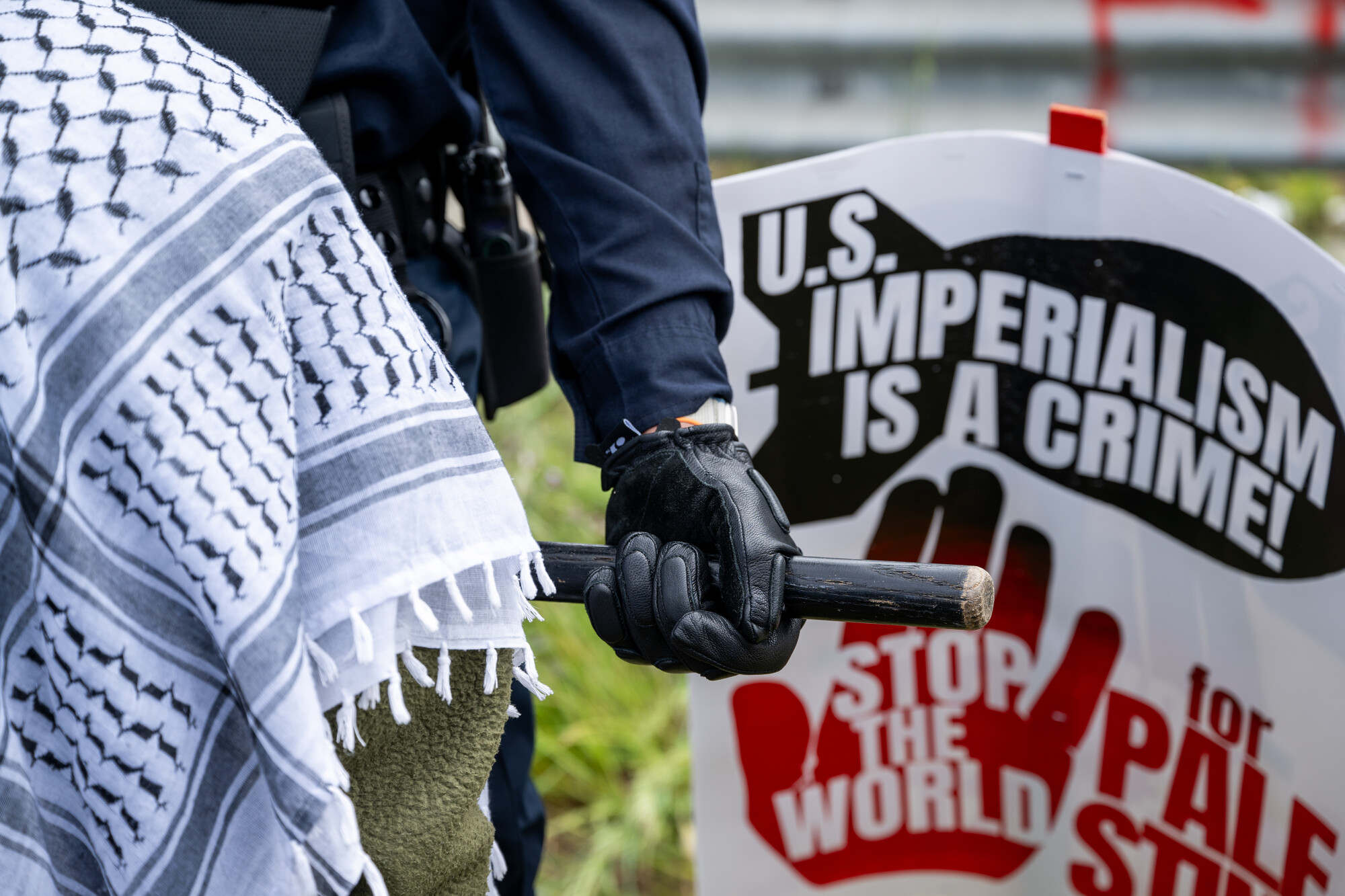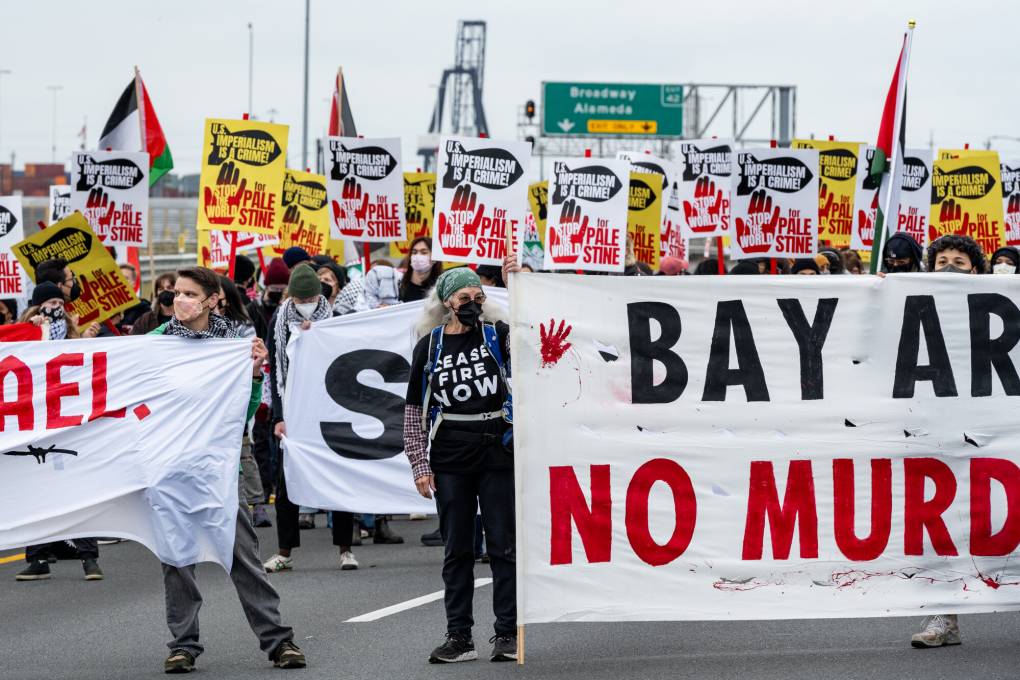Instead, in the days after the Golden Gate Bridge protest, the district attorney put out a call on social media to anyone trapped on the bridge on April 15, saying that they may be entitled to financial compensation.
“We depend on prosecutors to be reliable, fair, and equitable in their charging decisions,” Wozniak said. “And if you have two similar actions, they should be charged the same way.”
Late last year, a group of 78 pro-Palestinian protesters disrupted traffic on the San Francisco-Oakland Bay Bridge to call for a cease-fire in the war in Gaza. The so-called Bay Bridge 78 were charged with five misdemeanors each — including false imprisonment — and reached an agreement to avoid jail time in March.
Rachel Lederman, an attorney with the Center for Protest Law and Litigation, who represented the Bay Bridge 78, said there was no difference in conduct between the two cases and that claims of false imprisonment are “far-fetched.”
According to Lederman, in the Bay Bridge case, one motorist did receive a “small amount” of restitution.
Someone who was trapped on the Bay Bridge became ill and required an ambulance. The costs were then divided among the 78 Bay Bridge protesters before their cases were dismissed.
“But in the case of the Golden Gate 26, the D.A. seems to be seeking some large amount of restitution,” Lederman said.
The Golden Gate Bridge protesters initially surrendered to police in early August after a warrant was issued for their arrest by the California Highway Patrol.
The felony defendants will return to court on Sept. 30, and those facing misdemeanors will return to court at the end of October. If found guilty of criminal charges, the protesters would face years of jail time.
Wozniak said that after their hearing on Monday morning, his clients “feel empowered.”
“They know that they’re on the right side of justice, on the right side of history,” he said. “And as we see across this country — week in, week out — the people are willing to put their bodies on the line to demand an end to the genocide in Gaza.”



